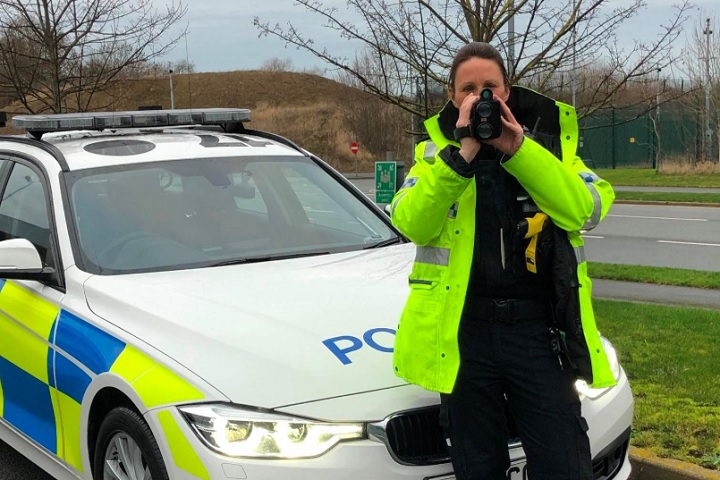
Police forces across the UK continue their efforts to tackle speeding drivers as part of a national speed enforcement campaign.
The two-week campaign (14-27 January) is being co-ordinated by the National Police Chiefs’ Council (NPCC) and has the backing of IAM RoadSmart, who says there is ‘clear evidence that speed kills’.
In Cleveland and Durham, police have introduced new legislation to help speed camera operators carry out their work.
The legislation means that the law preventing people from ‘obstructing a police constable’ now also applies to civilian speed camera operators, as part of the Police Reform Act.
Inspector Jon Curtis, from Cleveland and Durham Police Specialist Operations Unit, said: “The the new legislation will help our civilian camera operators by protecting them from the very small number of people who seek to prevent the police from fulfilling the desire of the wider community to have safer roads.”
As part of the campaign, officers are focusing their efforts on areas where there is a history of speed-related collisions.
Inspector Curtis added: “Each speeding driver puts at least one life at risk each time they speed; their own, anyone else in their vehicle, and any other motorists or pedestrians using the road.”
Meanwhile in Devon and Cornwall, operations are being carried out on arterial routes and A roads, and in areas where concerns have been raised about speeding through towns and communities.
Officers have also revealed some of the ‘gems’ given to them by drivers caught speeding, including:
- ‘Keeping up with the flow of traffic’ – when having just overtaken an unmarked police car at 92mph
- ‘My cat is sick’ – by a driver travelling at 91mph, with children in the car
- ‘In a rush to get to my girlfriend’s house’ (101mph)
- ‘Didn’t realise I was going that fast’ (100mph)
Finally, in Bedfordshire, Cambridgeshire and Hertfordshire all available patrols are being used to enforce ‘safe speeds’ in known problem areas.
Ian Manley, Bedfordshire, Cambridgeshire and Hertfordshire roads policing sergeant, said: “We have established a list of collision hotspots which we will focus on in an attempt to reduce the number of people killed and seriously injured on our roads.
“Year after year we deliver the same messages to slow down, in the hope that one day we won’t have to deliver heartbreaking news to families.”
Isn’t that what the Atkins report recommended or came to that conclusion. That the 20 is plenty scheme as it is will not work without passive engineering and or police intervention eventually coming in with enforcement.
Things that were not being considered or advocated as being necessary some years ago.
R.Craven
+2
I only mentioned it Rod, because it’s a common assertion on this forum that 20 limits are ‘never enforced’ – obviously they are.
Hugh Jones
0
Hugh
Avon and Somerset Police do it all the time. For them its self-funding See Somerset Live –
bit.ly/2FOgyaF
Rod King, Warrington
--3
On a less negative note, I noticed the police enforcing a local 20 mph limit yesterday.
Hugh Jones
+2
> The legislation means that the law preventing people from ‘obstructing a police constable’ now also applies to civilian speed camera operators, as part of the Police Reform Act.
Firstly, which Police Reform Act – there are several. But, let’s just presume that this is s.46 Police Reform Act 2002, which introduces offences of obstruction for accredited persons.
I’m going to have look into this further, I have doubts about its lawfulness.
There was another police force has done the same thing in recent history, but instead of doing it via potentially legitimate means, they did so successfully via flagrant abuse of s.303 Highways Act 1980.
David Weston, Corby
+3
Surely this is incorrect. Whilst the Cleveland and Durham Police may well apply new legislation set by parliament or they may newly apply current legislation already set by parliament, as police they are not able to introduce new legislation.
Rod King, Warrington
+5